MercoPress. South Atlantic News Agency
Stories for August 2013
-
Saturday, August 3rd 2013 - 01:38 UTC
Santos describes Colombian economy as the ‘third fastest growing’ in Latam
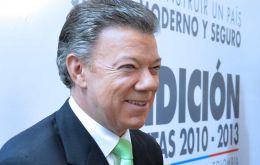
The Colombian economy is the third fastest growing in Latinamerica with a stable performance in 2012 of 4%; an estimated 4.5% this year and 4.7% in 2014, said President Juan Manuel Santos on making a balance of his three years in office.
-
Friday, August 2nd 2013 - 04:17 UTC
Argentines capable of ‘eluding the Pope and the UN in getting dollars out of their country’
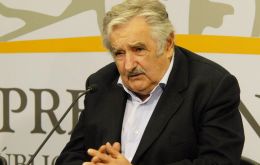
Uruguay president José 'Pepe' Mujica was again ironic in praising Argentines when he stated that the Argentine population “is capable of eluding the Pope and even the United Nations” in their quest to buy US dollars and get them out of the country, in spite of current exchange controls.
-
Friday, August 2nd 2013 - 04:10 UTC
Paraguay advancing on trade agreement with Mexico, previous to requesting Pacific Alliance membership

Paraguay and Mexico have made significant advances in reaching a trade agreement in the framework of the Latinamerican Integration Association, ALADI, according to Paraguayan diplomatic sources.
-
Friday, August 2nd 2013 - 04:05 UTC
Argentina president of the United Nations Security Council
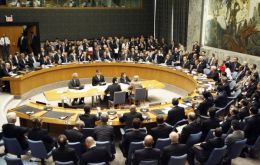
Argentina assumed on August first s the rotating Presidency of the United Nations Security Council. Argentina was elected as a non-permanent member of the multilateral body by the General Assembly for the 2013-2014 term rallying unanimous support among Latin American and Caribbean nations.
-
Friday, August 2nd 2013 - 03:55 UTC
Brazil supports IMF aid to Greece and summons delegate back home to explain
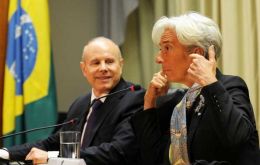
Brazil on Thursday expressed support for the IMF latest aid package for Greece, disavowing its IMF delegate who abstained in a vote on the issue. Finance Minister Guido Mantega spoke with IMF chief Christine Lagarde and backed the Fund's decision to release 1.7 billion Euros in rescue loans to ailing Greece Monday, his spokesman said.
-
Friday, August 2nd 2013 - 03:49 UTC
Lagarde again warns Argentina about the need for ‘credible stats’
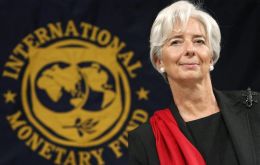
The Managing Director of the International Monetary Fund (IMF) Christine Lagarde has once more requested that Argentina present economic figures based on “trustworthy and credible numbers and statistics”.
-
Friday, August 2nd 2013 - 03:39 UTC
Rajoy admits in Parliament mishandling corruption scandal, but won’t resign
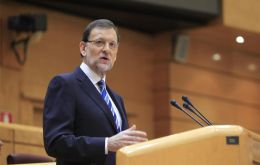
Spanish Prime Minister Mariano Rajoy apologised on Thursday for mishandling a major corruption scandal, but denied he or his conservative People's Party, PP, accepted illegal payments and rejected opposition calls to step down.
-
Friday, August 2nd 2013 - 03:33 UTC
Brazil June public accounts improve supported by state and local governments’ surpluses
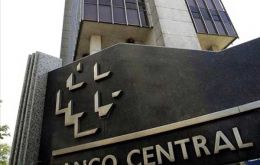
Brazil's twelve-month public sector primary budget surplus widened in June amid a robust surplus from state and local governments, helping bring the country's nominal deficit slightly narrower.
-
Friday, August 2nd 2013 - 03:26 UTC
Brazil's Rousseff announces billions to improve Sao Paulo transport system

Brazilian President Dilma Rousseff moved quickly this week to improve bus services in the metropolis of Sao Paulo, where protests over a fare increase in June triggered an outburst of national discontent that battered her popularity and questioned the country’s infrastructure for two major world events in 2014 and 2016.
-
Friday, August 2nd 2013 - 03:20 UTC
UN narcotics board says Uruguay’s marijuana bill is contrary to international treaties

A United Nations narcotics body on Thursday expressed alarm about a bill passed by Uruguay’s Lower House that would legalize marijuana.
